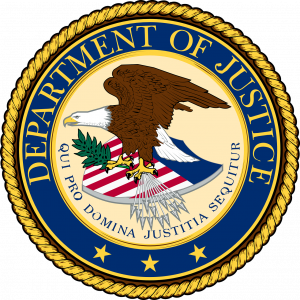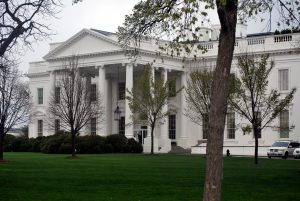Authors: Steven Cernak and Luis Blanquez
As we have reported numerous times (most recently here), the Federal Trade Commission has been making headlines with some controversial changes to U.S. merger review procedures, disputes over its voting rules, and personnel changes. But while the FTC was making headlines, the other federal antitrust enforcer, the Department of Justice Antitrust Division, was launching the three antitrust enforcement actions we summarize below. Now that Jonathan Kanter has been confirmed as the Assistant Attorney General in charge of the Division, we expect the pace of actions to only pick up.
American/JetBlue
In July 2020, American Airlines and JetBlue Airways announced the formation of the “Northeast Alliance.” The Alliance is a series of agreements between the two competitors relating to their respective operations at Boston’s and New York City’s four major airports. The agreements commit the two airlines to pool revenues and coordinate on “all aspects” of network planning except pricing at the four airports. The companies sought and, after making a few minor tweaks, received approval from the Trump Administration Department of Transportation in January 2021. Shortly thereafter, the Alliance began operation.
In September 2021, the Biden Administration, joined by several states, sued the two companies alleging that the Alliance was a civil violation of Sherman Act Section 1 under the rule of reason. The complaint describes the Alliance as effectively a merger of the two companies’ operations in Boston and New York that will reduce choice for consumers. Because the Alliance is effectively a partial merger, the complaint uses Clayton Act Section 7 analysis, including HHI calculations for various city-pairs that will be affected by the Alliance, to predict the negative effects on consumers.
In November 2021, the parties moved to dismiss the case. Their main argument is that in a Section 1 case, the complaint must allege anticompetitive effects that have already occurred. Predictions of potential anticompetitive effects, while sufficient for a Section 7 merger challenge, are insufficient here. The complaint does not allege any negative competitive effects, such as reduced flights, since the Alliance’s inception. In fact, as the motion and the companies’ monthly press releases since the lawsuit make clear, the capacity of the two airlines in the four airports has only increased. As of this writing, the Division and their state partners have not yet responded to the motion.
Penguin Random House/Simon & Schuster
In November 2021, the Department of Justice Antitrust Division filed a civil antitrust lawsuit to block Penguin Random House’s proposed acquisition of its close competitor, Simon & Schuster. As alleged in the complaint, this acquisition would enable Penguin Random House, which is already the largest book publisher in the world, to exert outsized influence over which books are published in the United States and how much authors are paid for their work.
As described in the complaint, the publishing industry is already highly concentrated. Publishers compete to acquire manuscripts, which they edit, package, market, distribute and sell as books. Publishers pay authors advances for the rights to publish their books. In most cases, the advance represents an author’s total compensation for their work. Just five publishers, known as the “Big Five,” are regularly able to offer high advances and extensive marketing and editorial support, making them the best option for authors who want to publish a top-selling book.
While smaller publishers occasionally win the publishing rights to anticipated top-selling books, they lack the financial resources to regularly pay the high advances required and absorb the financial losses if a book does not meet sales expectations. The complaint alleges that Penguin Random House, the world’s largest publisher, and Simon & Schuster, the fourth largest in the United States, compete head-to-head to acquire manuscripts by offering higher advances, better services and more favorable contract terms to authors.
This is a good example of how the Antitrust Division analyzes the existence of monopsony power and the way it sometimes harms competition in input markets. In this case, the proposed merger would result in lower advances for authors and ultimately fewer books and less variety for consumers. It would also put Penguin Random House in control of close to half the market for acquiring publishing rights to anticipated top-selling books, leaving hundreds of individual authors with fewer options and less leverage.
U.S. Sugar/Imperial Sugar
During the same month of November, the new chief of the Antitrust Division––Jonathan Kanter–– filed his first merger challenge to stop United States Sugar Corporation from acquiring its rival, Imperial Sugar Company. The complaint alleges that the transaction would leave an overwhelming majority of refined sugar sales across the Southeast in the hands of only two producers. As a result, American businesses and consumers would pay more for refined sugar, a significant input for many foods and beverages.
 The Antitrust Attorney Blog
The Antitrust Attorney Blog












